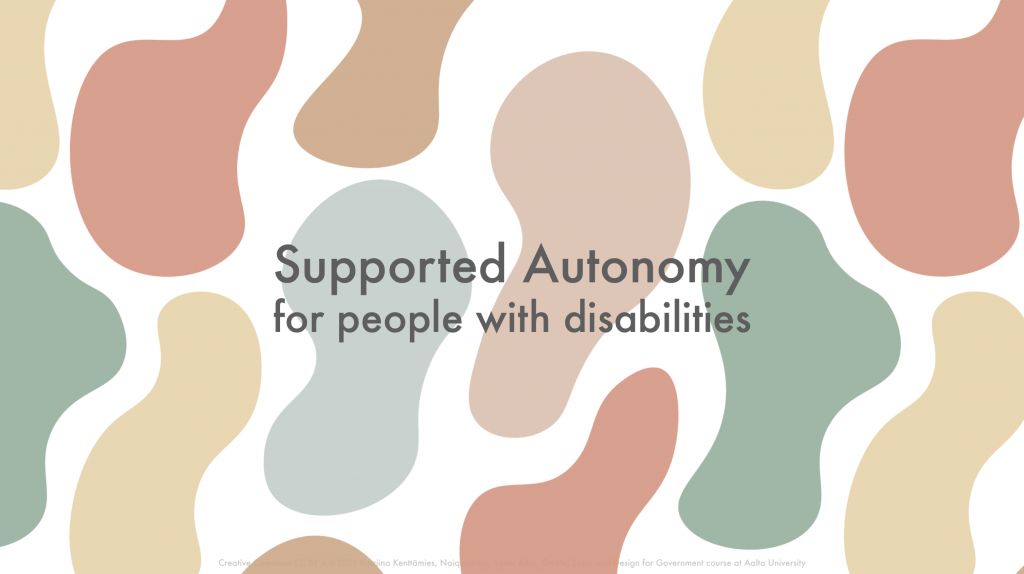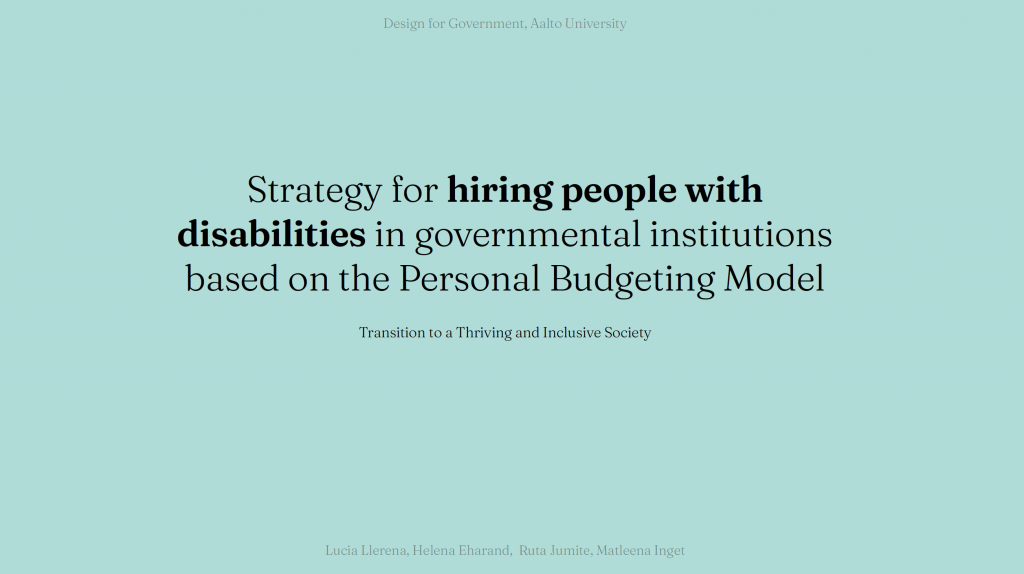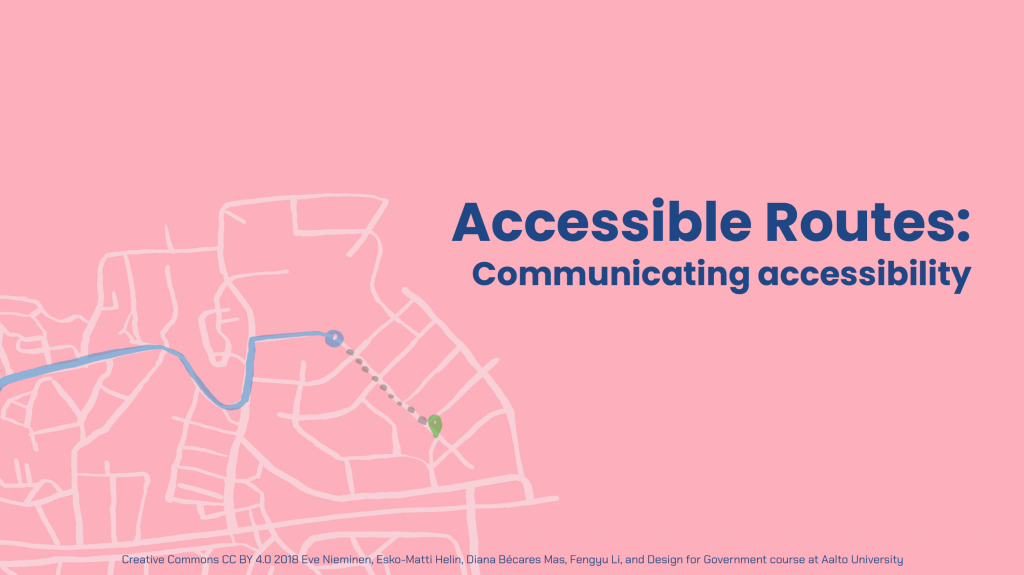Project Description
In tandem with the broader social and healthcare reform in Finland, and following the current Government agenda, the Ministry of Social Affairs launched a pilot project on personal budgeting for people with disabilities (Henkilökohtainen budjetointi). This new model aims at providing a more inclusive and flexible choice for persons with disabilities in order to give them access to an integrated offering, of private and public services, while also becoming more mindful of natural resource use. The aim is to better respond to the person’s individual goals and needs while taking sustainability into account. This model requires a transformative change – from sharing, integrating, accessing resources, but most importantly, including the citizens’ participation in the planning and co-development of services.
This project briefly looks at citizens with disabilities to address current deficiencies in the health and social care system, and to identify the benefits of the new model for this user group. The project is divided into two sub-projects. Both projects participate in enabling the availability of quality services on a national level while the nation works towards the carbon neutrality target of 2035. With the population structure of Finland rapidly ageing, delivering these services calls for cost and resource-effective solutions.
1.1 Personal budgeting model – THL & Kela
Sub-project 1.1. focuses on the development of a personal budgeting model for citizens with disabilities to be able to access the services, help and support that they need to improve their everyday life, health and well-being. The model should include the necessary processes and tools that connect this user group with municipalities, joint municipal authorities and service producers in a cost efficient way e.g. by utilising digital technologies. Ultimately, the project aims to inform the necessary legislation and policies that could support the adoption of such a personal budgeting model.
1.2 Mobility support services – Espoo
Sub-project 1.2 focuses on the Mobility support services in the Western Uusimaa region, which is one of nine ongoing regional experiments for personal budgeting. This initiative has the objective of reducing the carbon footprint of mobility services whilst providing improved yet cost-effective transport services that suit the disabled users lives, especially for the regular commuters user group, such as the students and workers whose multimodal journeys and daily travel are more costly and complex to operate.
Read more about the process in the blogs!
- Personal budgeting is complex but it’s ok to not understand the problem completely yet!
- Listening to the stakeholders, mapping the system and analysing the gathered information
- Active participation – A secret to well-being and functioning personal budgeting model
- Journey to Supported Autonomy
This project was showcased during the 2021 Final Show.
Student Proposals
Supported Autonomy
project by Senni Alho, Naiquan Gu, Katriina Kenttämies and Ondřej Zajíc.

Presentation slides (PDF)
Video of presentation (15 min)
Video of Q&A
Strategy for hiring people with disabilities
project by Helena Eharand, Matleena Inget, Ruta Jumite and Ana Lucia Llerena Martin del Campo.

Presentation slides (PDF)
Video of presentation (15 min)
Video of Q&A
Accessible routes – Communicating Accessibility
project by Diana Bécares Mas, Esko-Matti Helin, Fengyu Li and Eve Nieminen.

Presentation slides (PDF)
Video of presentation (15 min)
Video of Q&A
